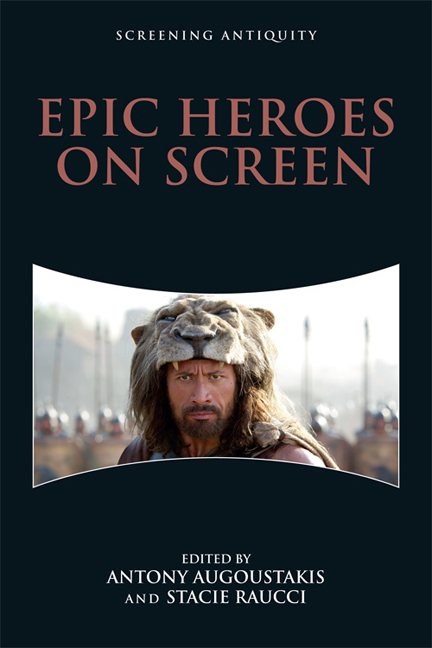1 - Hercules and the Millennial Generation
Published online by Cambridge University Press: 24 April 2021
Summary
Hercules films and television programs have proliferated in three clusters of concentrated production and wide popularity. The first consists primarily of the European “ancients” produced between 1958 and 1965; the second of the 1990s television series Hercules: The Legendary Journeys, its spinoffs, and the Disney film (1997); and the third of the recent 2014 Hercules products that have been offered in the new millennium. Classical reception studies focusing on the modern era often require the preliminary steps of identifying, collecting, and surveying the corpus to be investigated. This is certainly true for the filmed Hercules corpus studied here, so the relatively limited critical and scholarly analysis that has already been published will be relegated to the scholarly citations, while the purpose here is to survey the corpus, the origins of each cluster, their chronological span, media types, and plot range. In this instance, in assembling the Hercules corpus of the past sixty years, we will see the various characterizations of the ancient hero. Also a significant by-product will be the observation that the mythological figure Hercules has generated an extraordinarily large and varied number of filmed products that differentiates him from other successfully dramatized legendary figures.
CLUSTER ONE
The first cluster begins with Italian producer Federico Teti, who in 1957 invited a 1950s Mr. Universe, Steve Reeves, to play the role in Galatea Film's Le fatiche di Ercole, directed by Pietro Francisci, a film that claimed to have adapted Apollonius’ Argonautica but focused more on physical, political, and romantic labors for Hercules. The film might have languished in Italy, but Joseph E. Levine, as he told Variety, refurbished it for American audiences and spent enormous sums of money on promotion.
When I was told about “Hercules,” I flew over to Italy to look at it. The picture broke down when we were showing it, the titles were bad, it was in Italian and I couldn't understand it, but there was something in it that made me realize there was a potential fortune tied up in it.
- Type
- Chapter
- Information
- Epic Heroes on Screen , pp. 13 - 27Publisher: Edinburgh University PressPrint publication year: 2018



